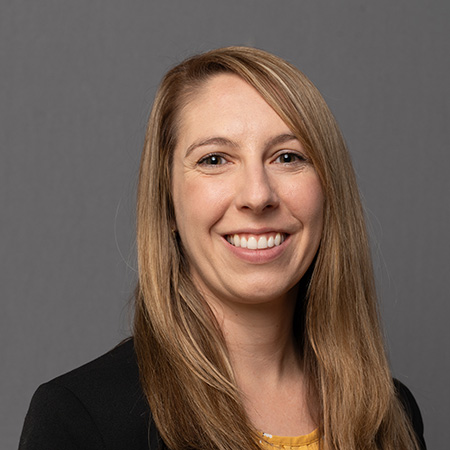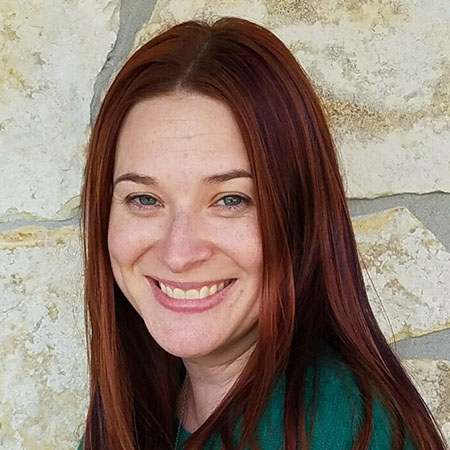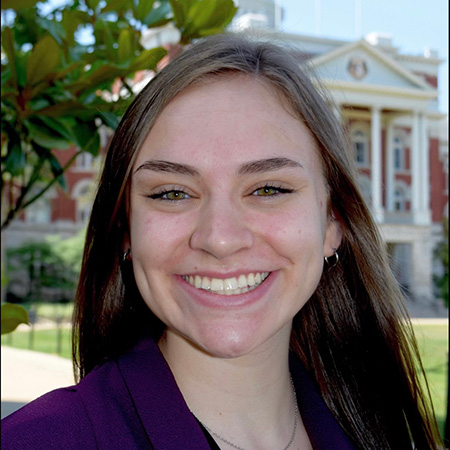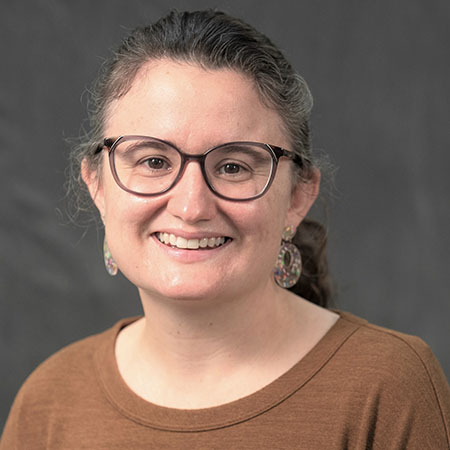News & Announcements
Public Health professionals share perspectives on One Health
Feb. 28, 2025
February is “I ❤️ Public Health” month for the Association of Schools and Programs of Public Health, and it is a time meant to highlight the important and varied role public health plays in the global community. Raquel Young, a master of public health student at Mizzou, collected public health professionals’ perspectives on the One Health approach, which is the idea that human, animal and environmental health are all interconnected.
Whether it’s through academics, community engagement or amplification of important conversations, Raquel is always busy and dedicated to bettering health outcomes. For this project, she reached out to faculty and staff across campus and gathered diverse perspectives on One Health.
By sparking curiosity and inspiring others to think critically, Raquel was able to bring together voices from various fields. She hopes to showcase how collaboration is essential to addressing complex public health challenges.
Meet the public health professionals

Raquel Young, BS Animal Science
MPH Candidate, Graduate Assistant
“Since the COVID pandemic, I’ve seen health outcomes around the world in a completely new way. I aim to empower others to recognize the importance of these interconnected health systems.”
What does One Health mean to you, and why is it important in your field of work?
“My background in animal science, paired with my deep love for nature and commitment to helping my community, has made me realize just how crucial it is to understand the concept of One Health. Human, animal and environmental health cannot be separated—they are inextricably linked. Collaboration, proper education and continued awareness for all is vital in creating the change we need.”

Jenna Wintemberg, PhD, MPH, CHES
Associate Teaching Professor, Director of Undergraduate Studies
Departments of Health Science & Public Health
What does One Health mean to you, and why is it important in your field of work?
For me, One Health represents the essential interconnectedness of human, animal, and environmental health. It underscores the importance of interdisciplinary collaboration to address complex health challenges such as zoonotic diseases, antimicrobial resistance, and environmental exposures that affect public health outcomes. In my teaching, I emphasize how public health professionals must work alongside veterinarians, ecologists, and policymakers to create holistic solutions.
What role do you believe education and awareness play in promoting the One Health approach?
Education and awareness are critical in advancing the One Health approach. By introducing students to this framework early in their public health education, I help them understand its relevance in their future careers—whether they work in epidemiology, health policy, or community health. Encouraging a One Health perspective equips the next generation of public health professionals with the knowledge and collaborative mindset needed to tackle global health challenges effectively.

Heather Davenport, PhD, MPH
Adjunct Instructor, Public Health Laboratory Supervisor – Missouri State Public Health Laboratory
How does collaboration across disciplines enhance the impact of the One Health approach?
A collaborative approach is necessary to achieve the best health outcomes not only for people, but animals and the shared environment. A failure to collaborate can result in a lack of awareness and understanding about a situation which may lead to fragmented efforts and inefficient responses.
What role do you believe education and awareness play in promoting the One Health approach?
I believe that education and awareness are vital to the success of a One Health approach. Communities need to be aware of One health issues and how changing behaviors regarding animal health and environmental protection can impact the health of individuals in the community.

Audrey Miller, BHS, CHES
BHS in Health Science with an emphasis in Health and Wellness, Minor in public health, Multicultural certificate
MPH candidate and graduate teaching assistant
What role do you believe education and awareness play in promoting the One Health approach?
We can’t begin to appreciate One Health if people don’t know what it is. I think the current avian influenza outbreak in the U.S. is a great example of why professionals need to be aware of threats outside their own field and how collaboration is necessary to protect the health of people, animals and the environment.
In your opinion, how can policymakers better support One Health initiatives?
We need to ensure voices across all disciples are being heard. We need to ensure that professionals in the fields of medicine, public health, animal science and environmental health have the resources necessary to communicate their findings with others and identify any emerging threats. Any barriers that hinder inter-agency communication should be removed.

Pamela Adkins, MS, DVM, PhD, DACVIM
Associate Professor, Food Animal Medicine and Surgery, College of Veterinary Medicine and MPH Veterinary Concentration Area Director
How does your work contribute to advancing the principles of One Health?
I primarily work with livestock and my research focuses on milk quality. Looking at the big picture, I am working to optimize animal health so they can provide high quality food for human consumption. Within this work, I also always considering the environmental impact of animal health. An example of this would be the impacts of antimicrobial usage on antimicrobial resistance genes in the environments.
Can you share an example from your work where the One Health perspective made a significant difference?
My research group primarily works in bovine mastitis, which is inflammation of the mammary gland that is usually caused by a bacterial infection. We have recently been looking into some of the bacterial species that cause mastitis that are also found to cause disease in people. Traditionally, these subjects have been evaluated as separate topics. However, we want to know if these bacteria are shared between the two populations. This is important from a food consumption standpoint, especially for people who choose to drink raw milk. It is also important as a workplace safety issue, for the people working at the dairy farm. The One Health approach of considering the origin of the bacteria and how they can be potentially shared between people and cows has changed my perspective and made me want to look closer at understanding these relationships.
Featured in this post

Jenna Wintemberg
Director of Undergraduate Studies (Health Sciences and Public Health) and Associate Teaching Professor
